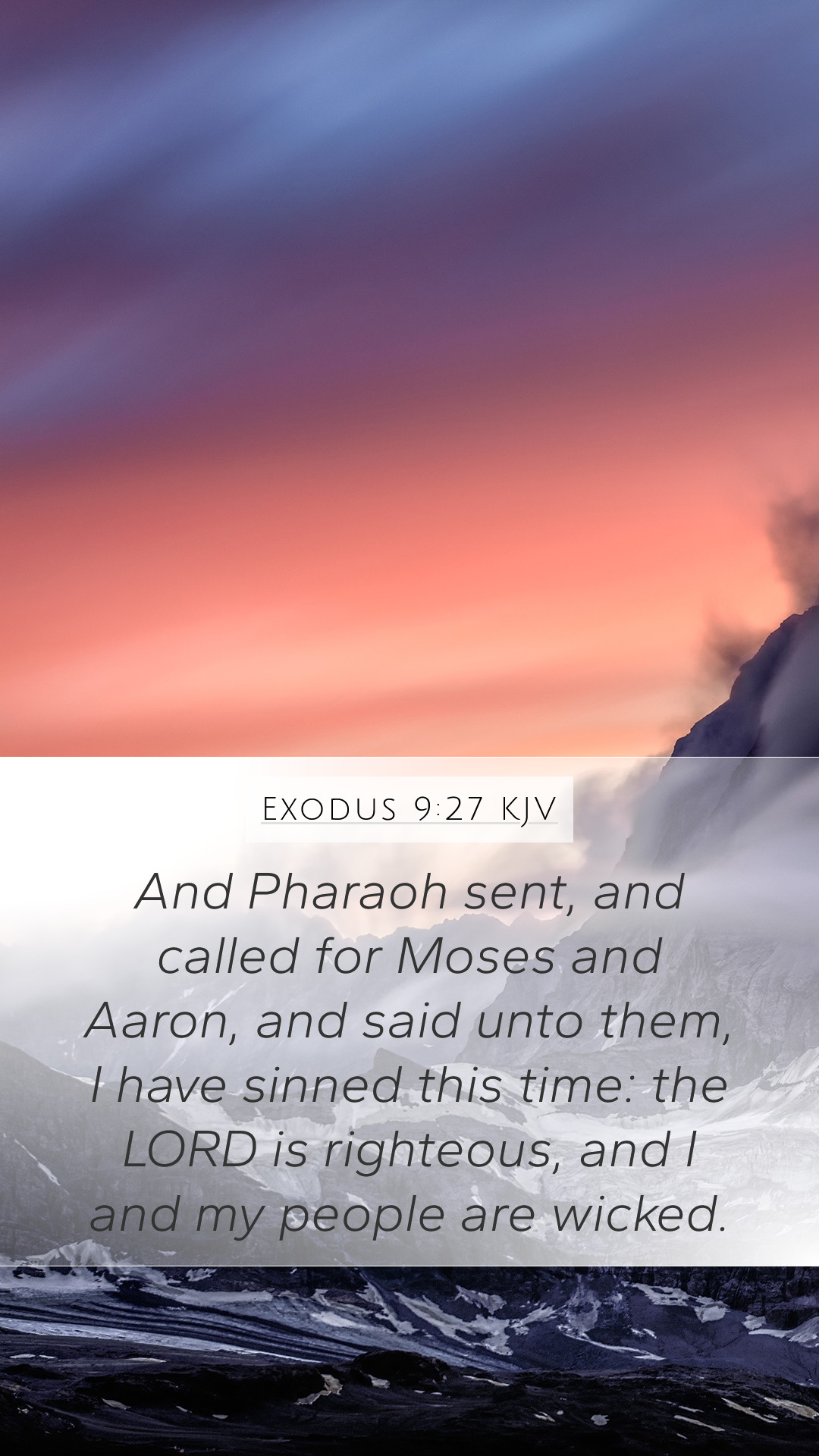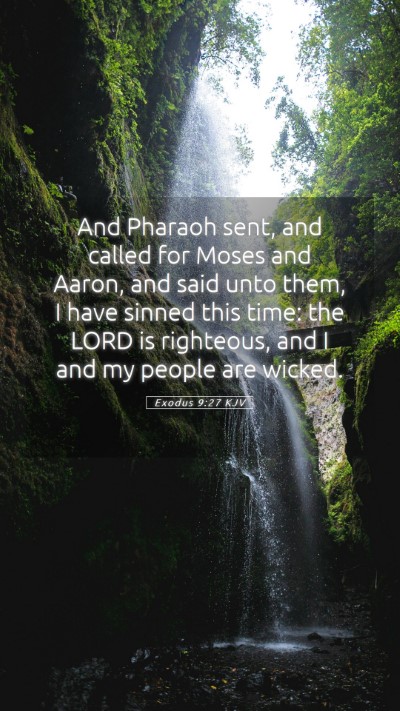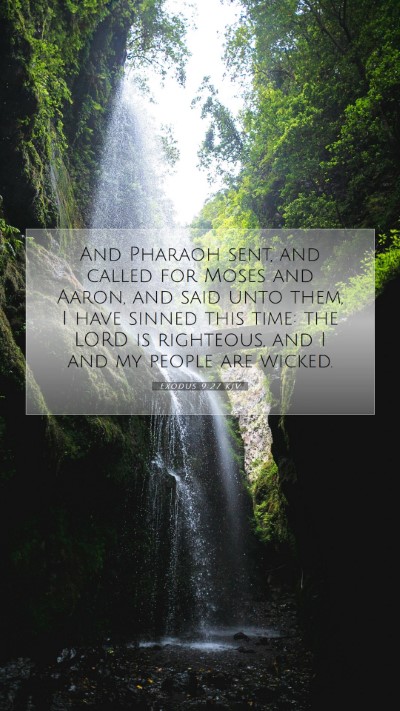Understanding Exodus 9:27
Verse Reference: Exodus 9:27 KJV - "And Pharaoh sent, and called for Moses and Aaron, and said unto them, I have sinned this time: the LORD is righteous, and I and my people are wicked."
Bible Verse Explanations
The verse Exodus 9:27 marks a pivotal moment in the narrative of Israel's exodus from Egypt. In this verse, Pharaoh acknowledges his wrongdoing and admits the righteousness of the Lord. This moment provides significant insight into the themes of repentance and divine justice that run throughout the book of Exodus.
Interpretation from Public Domain Commentaries
Various respected commentaries shed light on this verse, providing a multi-faceted understanding:
-
Matthew Henry: Henry emphasizes that Pharaoh's admission of sin, although sincere in the moment, was a temporary acknowledgment that did not lead to genuine repentance. He notes that the struggles Pharaoh faced were a result of his hardened heart and disobedience to God, a theme repeatedly echoed throughout the plagues.
-
Albert Barnes: Barnes highlights the significance of Pharaoh's recognition of the Lord's righteousness. This acknowledgement serves as a stark contrast to his previous attitudes and illustrates the powerful conviction that the Lord's judgments can produce. Barnes also suggests that Pharaoh's confession can be viewed as a prelude to the eventual escape of the Israelites, albeit further proof of the stubbornness that would soon follow.
-
Adam Clarke: Clarke remarks on the dual nature of Pharaoh's statement, recognizing the gravity of his words. He points out that while Pharaoh admits to his sin, his repeated failures to follow through with true change serve as a critical commentary on human nature—an inclination towards temporary contrition rather than sustained transformation.
Key Themes
Exodus 9:27 encapsulates several key theological themes:
- Repentance: Pharaoh's acknowledgment of sin acts as a temporary plea for relief from the plagues, illustrating the often fleeting nature of human repentance.
- Divine Justice: The verse expresses the righteousness of God, affirming the biblical understanding that God’s judgments are just and deserved.
- Human Sinfulness: The acknowledgment of sin by Pharaoh reinforces the biblical theme of human wickedness in contrast to God's holiness.
Application of Exodus 9:27
This verse serves as a reminder for readers to reflect on their own lives. Recognizing one's sin is the first step toward true repentance. However, genuine change requires more than just a verbal acknowledgment; it necessitates a heartfelt commitment to follow God’s ways.
Cross References
For a more comprehensive understanding, consider the following related verses:
- Exodus 10:16-17 - Pharaoh again confesses his sin but quickly hardens his heart once more.
- Romans 3:10-12 - An affirmation of the universal nature of sinfulness.
- 2 Chronicles 7:14 - A call to true repentance and humility before God.
Conclusion
Exodus 9:27 serves as both a historical moment in the narrative of Israel’s liberation and a profound teaching on the nature of sin, repentance, and divine justice. By understanding this verse thoroughly through various commentaries, readers can grasp its implications for biblical exegesis and apply its lessons in their own lives.
Further Bible Study Insights
For those interested in deeper study, utilizing resources and tools such as Bible study groups, online Bible study, and various Bible study materials can enhance understanding and interpretation of challenging passages. Explore topics like how to interpret Bible verses or applying Bible verses to daily life to grow in spiritual knowledge.


